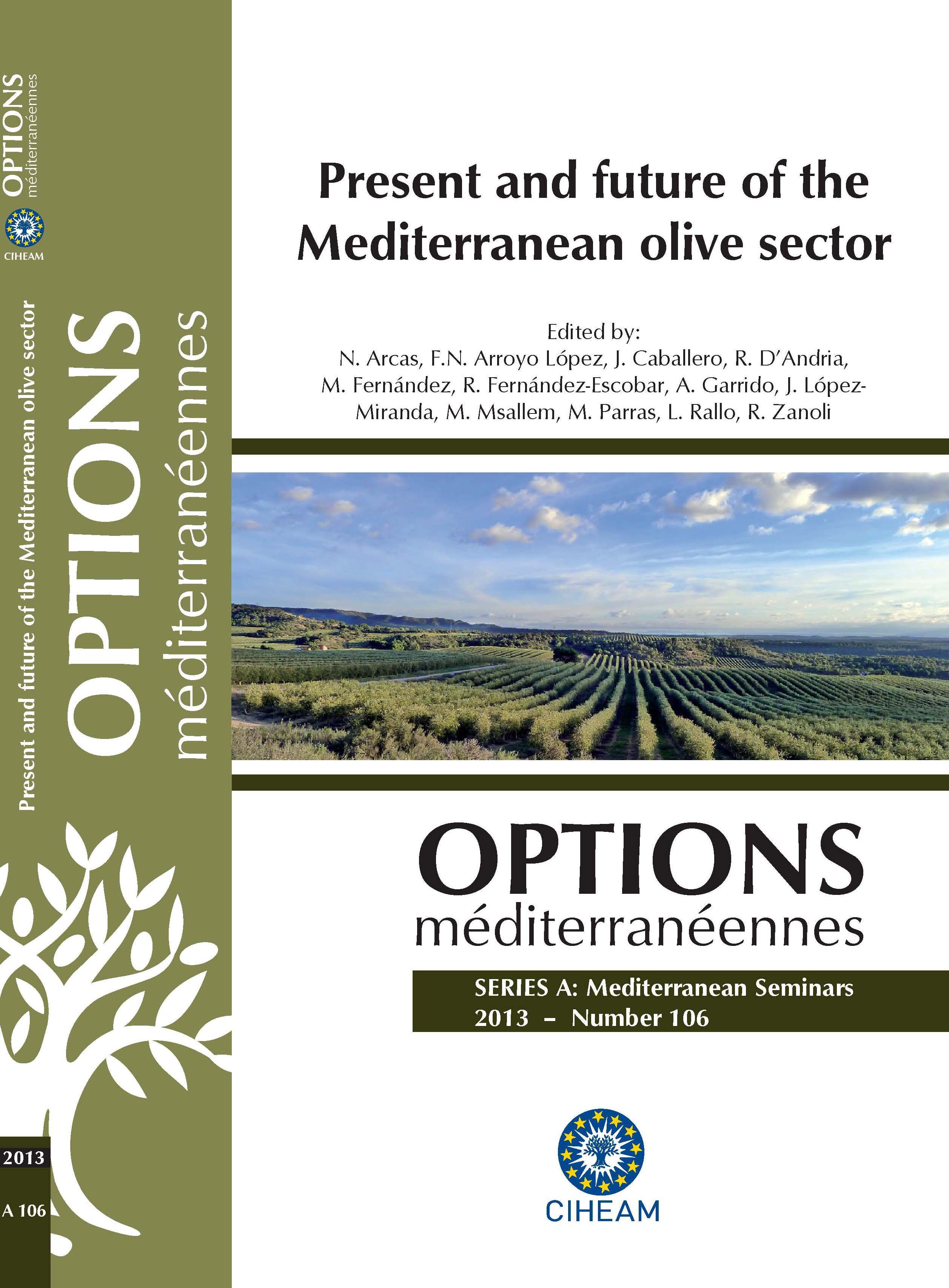| Article précédent | p. 75-84 | Article suivant |
Case study of an integrated system for olive mill by-products management in Sfax region in central Tunisia
Olive oil extraction generates annually a huge amount of by-products called olive mill wastewater (OMW) and olive husk in the whole of the producing countries all around the Mediterranean basin. In the particular situation of Sfax (a city in the Center of Tunisia) the major part of the 400 olive mills is located in the urban area. This situation makes olive mil by-products disposal and management hard. This work focused on the agronomical valorisation of these by-products. OMW was directly spread in fields while olive husk was primarily composted with cow manure. The technical and agronomic efficacy of these valorization ways was confirmed through three years field studies. Indeed, OMW spread improved soil cation exchange capacity as well as soil fertility with regards to organic and mineral compounds. The obtained olive husk compost was an organic fertilizer of high quality. The agronomic valorisation of olive mill by-products was technically realisable with important beneficial effects on soil and plants and with very limited impacts on environment. The cost of these techniques is moderate and comparable to the cost of actual disposal methods. This makes the integrated way of management interesting and practically feasible at wide scale. This method involve olive mill by-products transport, temporary storage or composting and spread in the fields.
L’extraction de l’huile d’olive génère d’importantes quantités de sous-produits, l’un liquide appelé eau de végétation ou margines et l’autre solide appelé grignon d’olive. Ces sous-produits représentent un problème environnemental de première importance dans tous les pays producteurs. Leur gestion, différente d’un pays à l’autre, engendre des coûts importants et souvent des effets néfastes sur l’environnement. Dans le cas particulier de Sfax qui est une ville du centre de la Tunisie, ce problème est plus épineux dû au fait de la présence de la majorité des 400 huileries dans le périmètre urbain. Cette situation accentue la difficulté de la gestion de ces sous-produits générant un surcoût dû à la nécessité du transport hors de la ville. La valorisation agronomique de ces sous-produits, par épandage direct pour les margines ou après compostage pour le grignon, peut être une solution faisable et rentable. Après la vérification technique de cette possibilité, une méthode de gestion intégrée des sous-produits a été proposée. Le coût de cette méthode reste modéré et est comparable au coût de la gestion actuelle. De ce fait, cette méthode peut être appliquée à large échelle. La méthode englobe le transport des sous-produits dans les zones d’épandage, le stockage temporaire ou le compostage et l’épandage.
- [ Afficher ]
- [ Télécharger ]
- [ Exporter la citation ]
Vous pouvez télécharger la citation au format :
- [ Imprimer ]
-
Mots-clés
ENGRAIS ORGANIQUE, MONDAGE, OLIVE, SOUS-PRODUIT D'HUILERIECiter cet article
Gargouri K., Ben Rouina B., Rhouma A., Ayadi M., Abichou M., Bentaher H. Case study of an integrated system for olive mill by-products management in Sfax region in central Tunisia. In : Arcas N. (ed.), Arroyo López F.N. (ed.), Caballero J. (ed.), D'Andria R. (ed.), Fernández M. (ed.), Fernandez Escobar R. (ed.), Garrido A. (ed.), López-Miranda J. (ed.), Msallem M. (ed.), Parras M. (ed.), Rallo L. (ed.), Zanoli R. (ed.). Present and future of the Mediterranean olive sector . Zaragoza: CIHEAM / IOC, 2013. p. 75-84. (Options Méditerranéennes : Série A. Séminaires Méditerranéens; n. 106). International Seminar: Present and Future of the Mediterranean Olive Sector, 2012/11/26-28, Zaragoza (Spain). http://om.ciheam.org/om/pdf/a106/00006807.pdf



